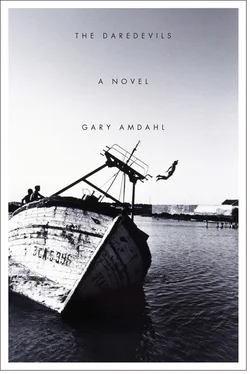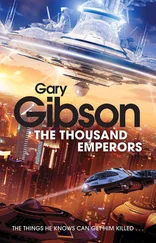But she was not speaking. He was not hearing. He was not even thinking. She was gesturing impatiently for him to join her. Tonight was a run-through. The second movement was all his: if he was bad tonight, he would be good tomorrow. God help him if he was good tonight. But good or bad, it would be over. Then it was either to bed or to Caruso.
When the strange noises began. early in the morning, Charles snug, cozy, dreaming deep meaningful dreams, meaningfully complex psychological dreams, not the insipid nightmares of a little boy. and the house to shake, and things to fall, with the discrete recognizable sounds of falling now and smashing to pieces later —he thought he could hear the falling of the object through the air, or its creaking away from its place, and only after some time the shattering, breaking noise, but it is certainly possible that he was still in some way dreaming — and finally the house to seem to jump down on its foundation and collapse, Father had them (Mother, Amelia, Charles, the servants) out on the streets immediately, and it was easy, too easy, to see how you got things done. In the early going it was “frightening,” of course it was, but it was the consequent sadness that Father urged Charles to repel, brutally if he had to. He quoted Montaigne at him, which was something he did under ordinary circumstances too: “I neither like nor respect it, although everyone has decided to honor it. They clothe wisdom, virtue, conscience with it! But the Italians have baptized malignancy with its name. It is always a harmful quality, always insane, always cowardly and base, and the Stoics forbade their sages to feel it.” And while the thought would ring quite resoundingly in his memory a hundred years later or however long it had been (he didn’t know and didn’t care — though his secretary informed him it had been less than twenty): Sadness? The brutal, if necessary, repulsion of sadness? He wondered: Have I got that right? He wanted to laugh in Father’s face. Where does sadness come into it? He was only twelve years old but had to say it was ludicrous: The great magical city, isolated by the blue blue ocean on its chilly yellow hills and impregnable in its glorious golden, silver, railroaded Wild Western American queenliness, had crashed to the ground in less than a minute and broken apart and burned to ash so easily that he could not think of it except as something of no or little consequence. It had disappeared. The entire vast intricacy, the little cosmos. What had it been that it could disappear like that? Whatever it was, it had been swept up and away in poisonous black whirlwinds. The dome of City Hall looked like the burned-out and still smoking cage of a monstrous bird against the red sky and the bellies of buildings seemed to have been ripped open, spilling iron intestines and organs composed of brick and wood. Faces of buildings had been stripped, revealing tiny stage piled upon tiny stage, floors and floors and rows and rows of secret rooms thrown open and lit as if to prove there were no other kind of drama than pitiless silence and nakedness. The dead men and women on the sidewalk, shrunken and blackened and charred. The first time they’d encountered such a corpse, his first thought was that it was some kind of objet d’art, and he’d turned away. Amelia said, “Oh my God, it’s a man.” They’d drawn nearer and suddenly ice was running up and down Charles’s spine, his head was spinning and his knees gave way. “No,” he said, getting up quickly but with help, “it’s a woman.” There was no sign of gender on the corpse, almost no sign of species, but something in the black hard lava of the head seemed. feminine. It made no sense at all that it should matter, even when it had mattered so much just a few hours earlier, but it harrowed him. And the horses, those poor magnificent horses, swollen and deformed, turned to grotesque marble statues, the hideous chess pieces of a gigantic blazing weeping demon who was sweeping the piles of junk along the streets with the skirts of his robe as he staggered and flew in little hops in search of something they could not guess at. At some point — it must have been the second or third day — he found himself standing with his older brothers, Andrew and Alexander, and Father in front of the theater. They were banishing sadness. The building had not been altogether destroyed in the earthquake — it was in fact in relatively good shape, but was going to be dynamited along with hundreds of other structures as breaks against the fires. They were using black powder, which created a hundred little fires for every break it might or might not reduce a structure to. Who had told them to use black powder? Who had authorized the use of black powder? Father had angrily asked these questions. But black powder was all they had. The texture of the sky was of dense roiling low clouds, but its color was luminous orange and they were not clouds. Shadows as stark as any cast on the sunniest of sunny days attached themselves strangely to people standing or lying on the street, but they were dark red instead of black. They lit the fuse and waited. No explosion was forthcoming, though many could be heard elsewhere in the city, single tolls of immense bells. Father and a man he knew, an engineer from the Spring Park Water Company, a private holding and distribution system in which Father held a significant number of shares and which seemed, secretly, to be, somehow, at issue, as there wasn’t a whole lot of water to be had, waited incredulously a minute or two more, then walked up the steps to the front door of the building. The other man picked up the dead fuse and examined it just as Father’s hand reached for the doorknob and the powder exploded. The engineer was killed; Father took many shards of glass and splinters of wood in his face and neck and chest, and one big piece nearly eviscerated him and broke his hip, making him fall backward down the steps, taking Charles with him, who passed out and broke an arm in the fall but who was otherwise unhurt.
When he returned to consciousness, he realized he had been elsewhere. And realized as well that he had not returned to the place he had retreated from. He was lying next to Father in the street and people were shouting in the distance and hovering above him. Father liked to say, quoting someone else, that a man could believe boldly in truth A — that Jesus, for example, had suffered and died for your sins, or that the things around you constituted a reality, a real world — and escape thereby a belief in falsehood B — that Satan owned your fallen soul, or that the things around did not constitute a real world, were not real — but simply disbelieving B did not mean you believed A. In fact, by simply disbelieving B, you could fall into other falsehoods, C or D, that were just as bad as B. Or you might escape B by not believing anything at all, not even the Truth.
“Nothing has been lost here,” Father whispered to him, “that cannot be replaced. Easily and swiftly replaced. Not this building, not this city. Not me. Not you.”
So, Charles thought: nothing had been lost because nothing had been there in the first place. Father continued to croak and bubble and spit: “Virgil confirms this for me: ‘ nothing unreal is allowed to survive .’”
“Yes, Father,” Charles whispered, trying to sop of some of Father’s blood with his own shirt, not really knowing what he intended to do with the blood once he’d collected it: wring it out over Father’s intestines and hope it seeped back to places where it would do some good? Wring it out somewhere else, in an effort to tidy up? Point was, he was trying! He was banishing sadness, as far as anyone else could tell. He was clean and cool and clear. And these qualities would surely not be lost on Father, for whom Charles wanted to appear fearless. He was utterly afraid and not at all confused about it, but for Father’s sake, he wanted to appear as something he was not.
Читать дальше












